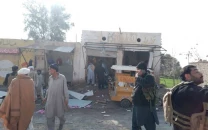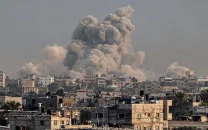The benefits of having nuclear weapons

In the political world of realism, states are relatively positioned in accordance with their power and resources, and national security is determined by their ability to defend their citizens and their national sovereignty from external threats. Every state knows that rival states can use their superiority against them. This creates an environment of uncertainty and induces states to go after the ‘relative gains’ even at the cost of peace. Under the rule of ‘anarchy’ due to the lack of a centralised authority, conflicts in international politics remain a pervasive state of affairs whereas cooperation remains a difficult task to achieve.
The above comparison shows that both schools have distinct explanation of wars but both agree that lack of a centralised order, which constitutes the ‘self-help system’ of anarchy, is the root cause of conflicting international relations. One argues that nuclear proliferation is the ‘missing order’ of the international world, which has the potential to overcome anarchy and act as a central unifying force. It functions in two dynamic ways: it secures the borders of a nuclear nation state once and for all and as a consequence of that, discourages wars between, among and against nuclear states. Without spending huge funds on conventional wars this method conveys a sharp message to all small and big monsters that an attack on ‘our’ nuclear security will be punished with such density and speed that it will undermine ‘your’ relative gains. Unlike conventional warfare the speed at which nuclear weapons promise to deliver nuclear destruction has made wars between nuclear states rationally impossible. It raises the stakes too high for war and compels states to resolve their conflicts politically rather than militarily.
If the liberals and realists are in the quest for ‘order’ which can administrate cooperation and peace among states, and prevent the world from conflicts and wars, then one argues that it is this ‘nuclear order’, or nuclear defensive force, which will be the central deterrent authority of the international system. In the presence of this ‘nuclear order’ no state can ‘cheat the international agreements’ (the liberal explanation of wars) nor lust for ‘relative gains’ (realist justification of war). No state will even to think of destroying the security and territorial unity of a nuclear state.
In the short span of 50 years the world has witnessed the gradual but transatlantic spread of nuclear weapons. States like Pakistan and Israel become more desperate to develop nuclear warheads when they have to encounter much stronger enemies in their respective geographical locations. By adopting the nuclear path both states have offset their conventional military weaknesses, made their defences invulnerable and transformed their inferiority to that of nuclear parity with their opponent. States do not acquire nuclear arsenals in order to annihilate their enemies. On the other hand, states are desperate to create a strong nuclear shield in order to avert wars by deterring ‘would-be’ aggressors once and for all.
Published in the Express Tribune, June 16th, 2010.


















COMMENTS
Comments are moderated and generally will be posted if they are on-topic and not abusive.
For more information, please see our Comments FAQ